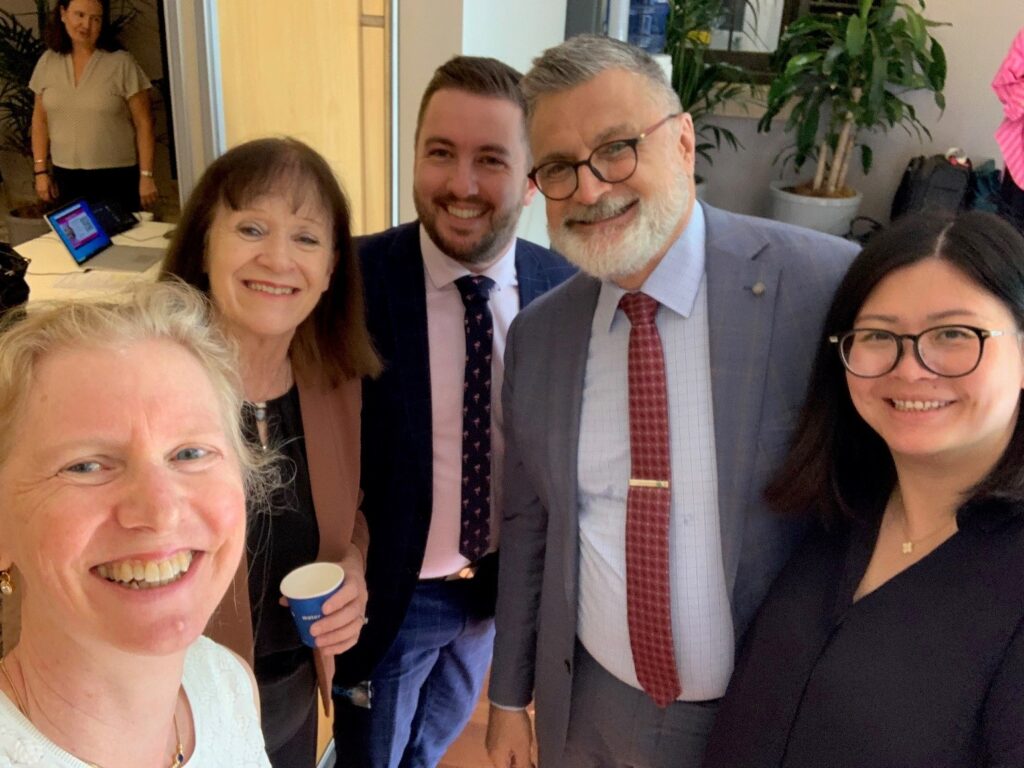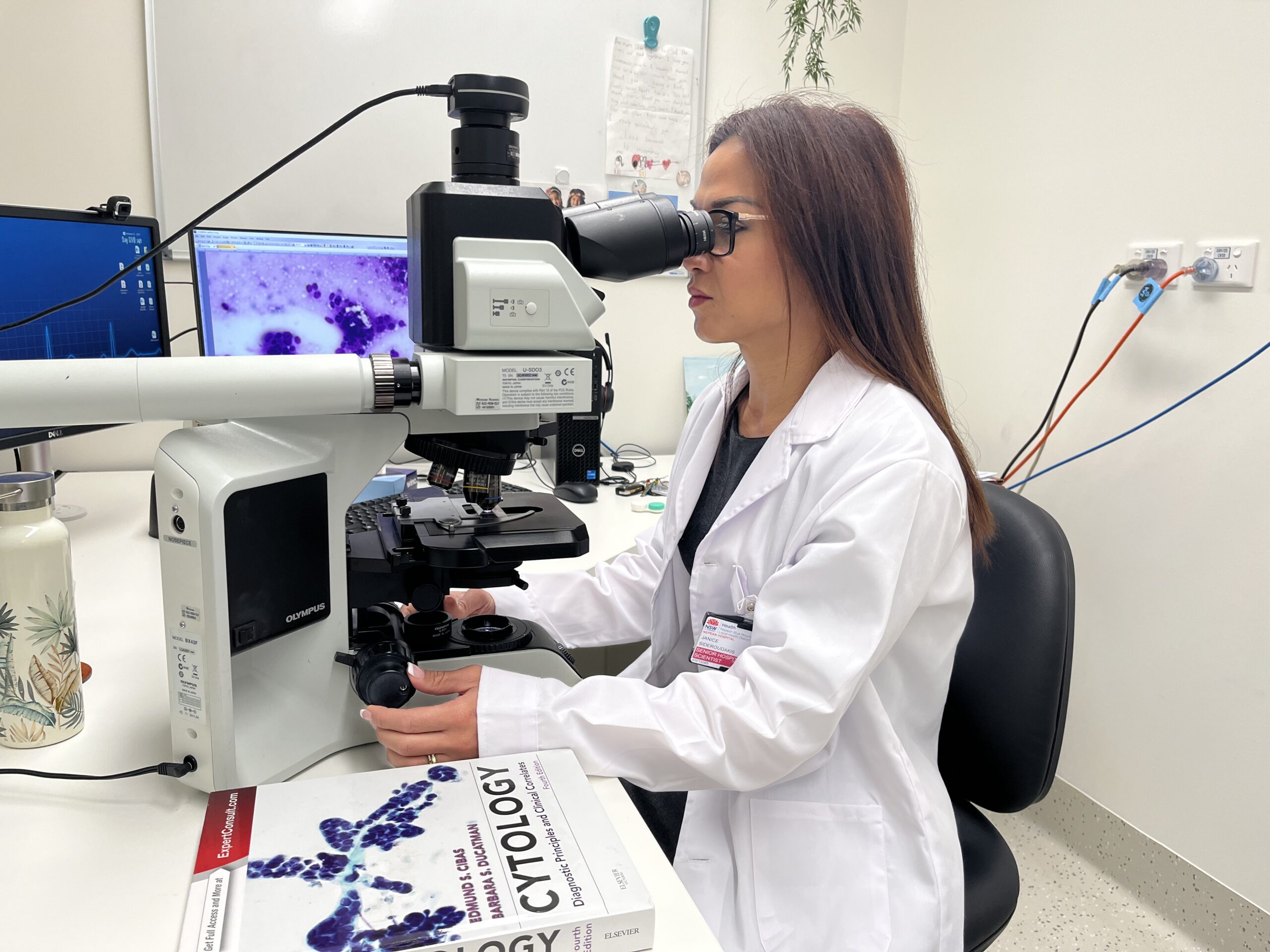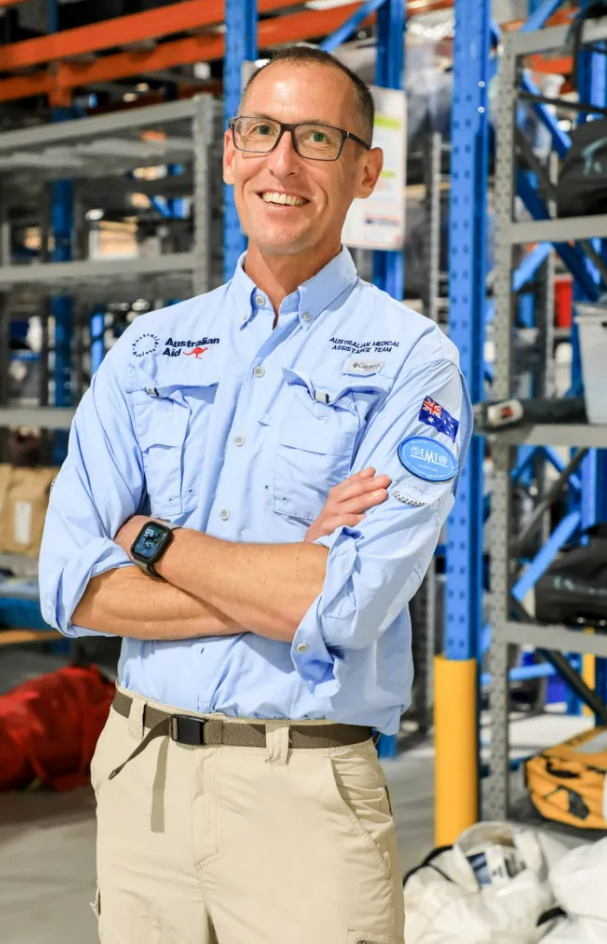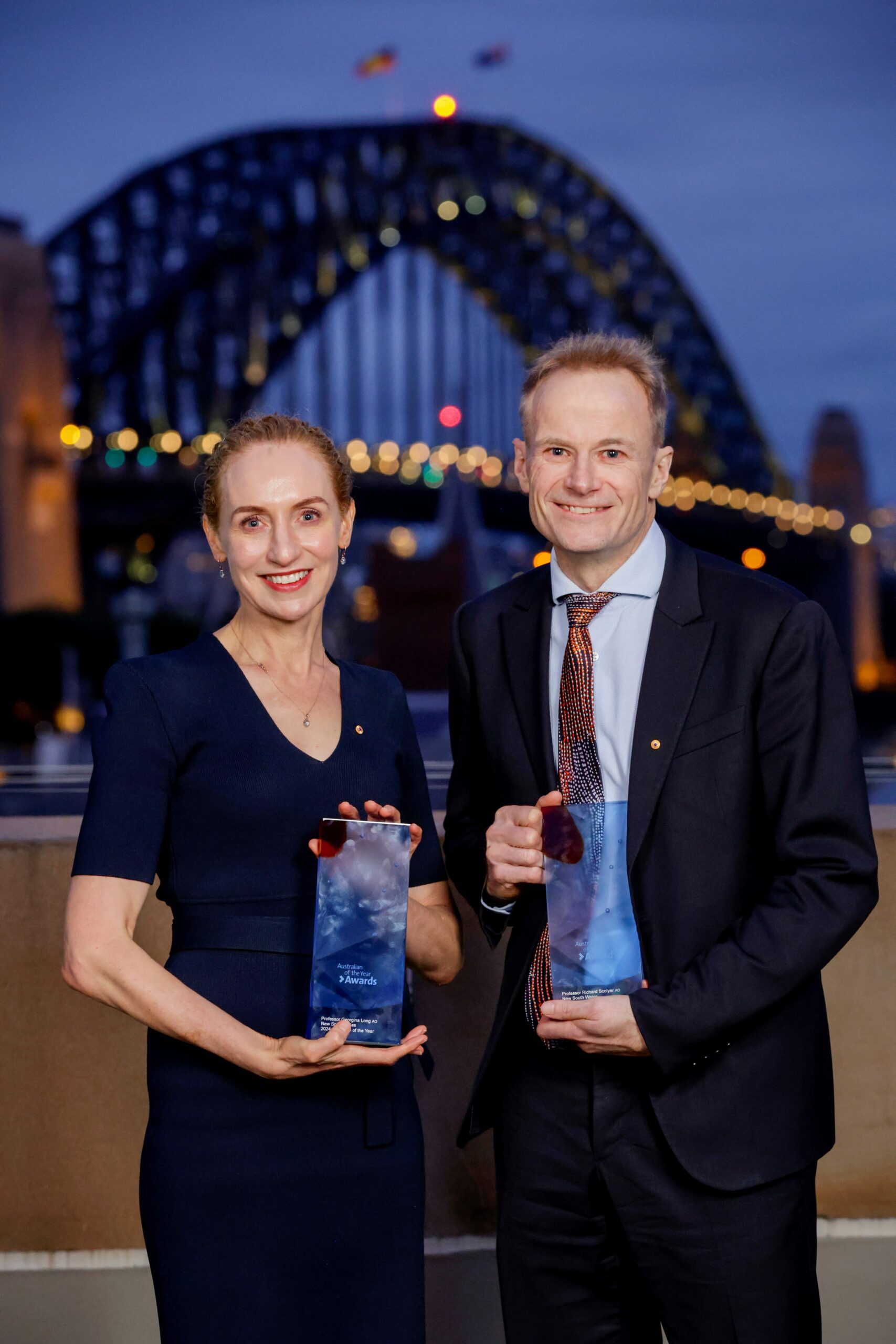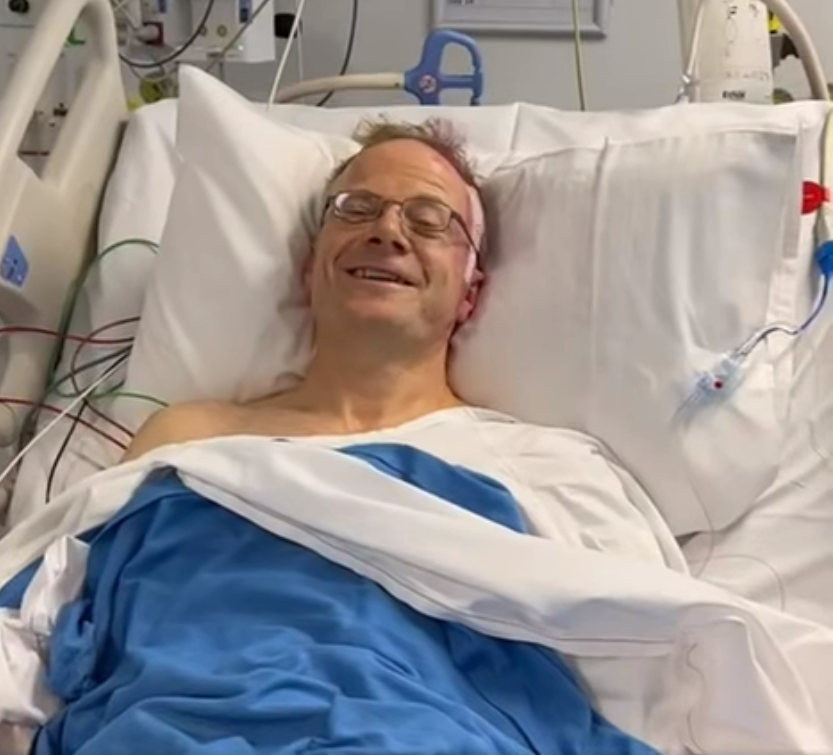Pathology medical trainees are the future of our medical workforce and a crucial part of our organisation.
There is a shortage of specialist pathologists internationally and across Australia and we are working with NSW Health and the Royal College of Pathologists of Australasia (RCPA) to recruit, train and retain the next generation in all disciplines.
Thirty-five new medical trainees began the new clinical year with us on 5 February 2024.
We have 22 in Anatomical Pathology with 8 working in regional centres at Tamworth, Orange, Wagga Wagga and for the first time in Coffs Harbour. In our metropolitan laboratories, we have new trainees working across Forensics (1), Immunopathology (2), Chemical Pathology (3), Microbiology (7) and AP (14) at Newcastle, Gosford, Wollongong, Nepean, Royal Prince Alfred, Westmead, Concord, Liverpool, St George, Prince of Wales and Royal North Shore.
In early February, our new Microbiology and AP trainees attended orientation at the Royal College of Pathologists of Australasia (RCPA) at Surry Hills, the NSW Ministry of Health at St Leonards, as well as touring the Forensic Medicine and Coroners Court Complex (FMCCC) at Lidcombe and visiting a private laboratory.
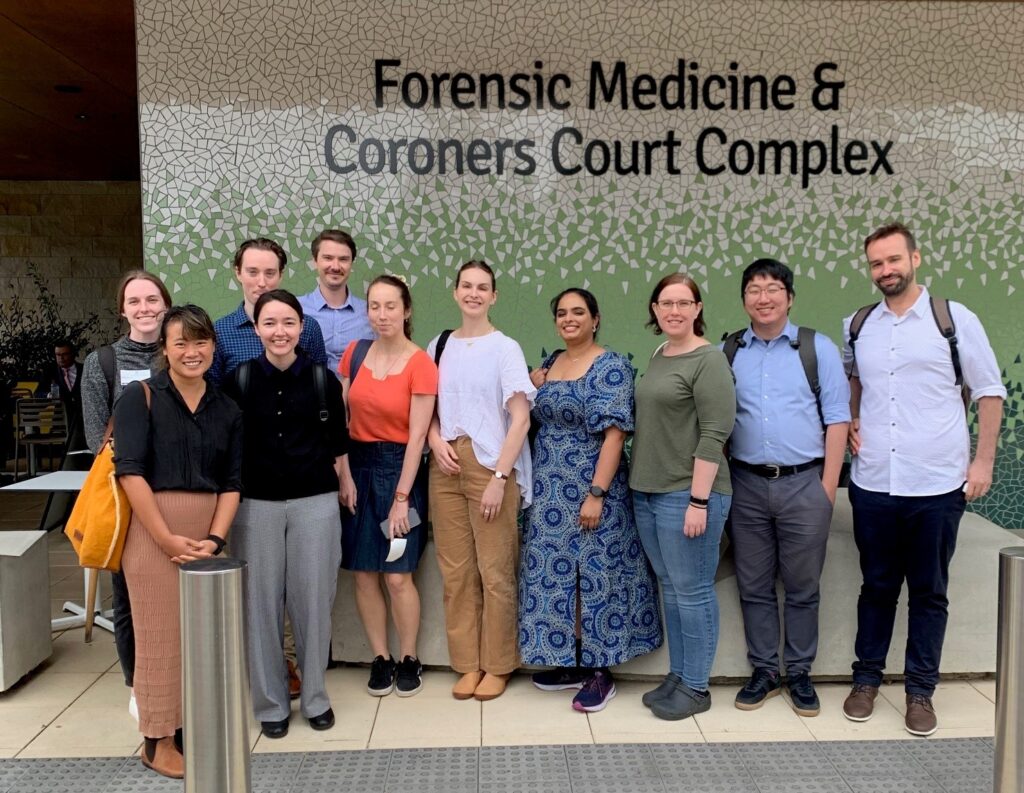
They heard presentations from NSWHP’s Medical Workforce team, senior trainees and RCPA Chief Executive Officer, Dr Debra Graves. Our Director of Clinical Operations, Metropolitan, Dr Louise Wienholt, and Human Resources Manager Laila Hassan, also presented.
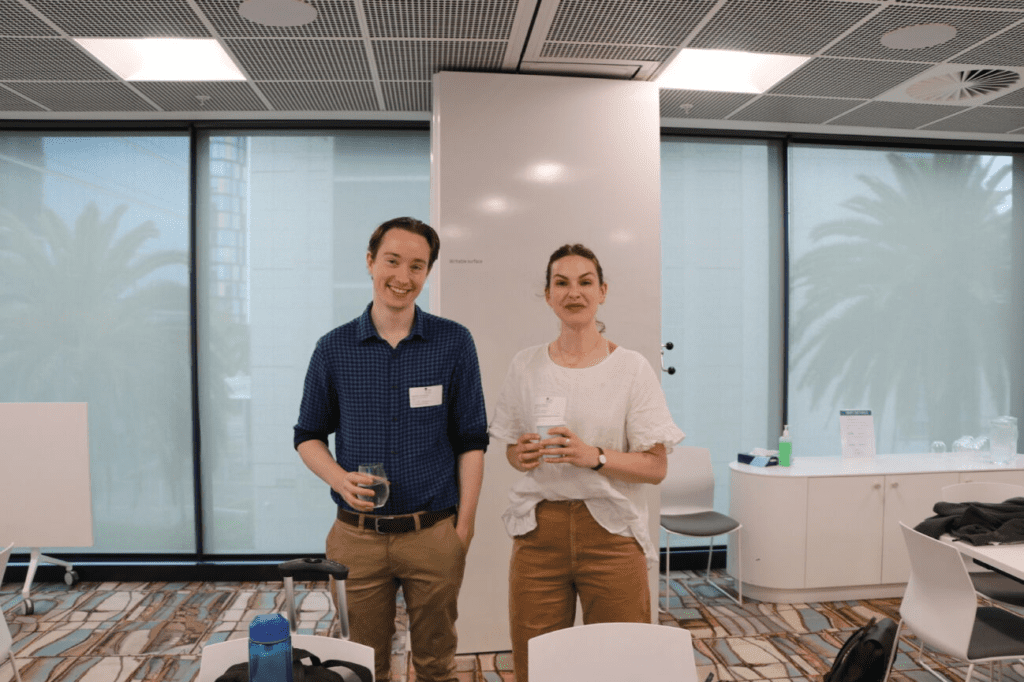
The NSW Pathology Training Program, run by NSWHP and the RCPA, is one of the most rigorous in Australia. It takes 5 years to qualify for RCPA Fellowship, with a strong emphasis on academic and practical learning.
We employ approximately 120 junior doctors each year in trainee/registrar positions across NSW, mostly in Anatomical Pathology.
We’re also supporting existing trainees in Haematology and Genetic Pathology in their progression towards Fellowship.
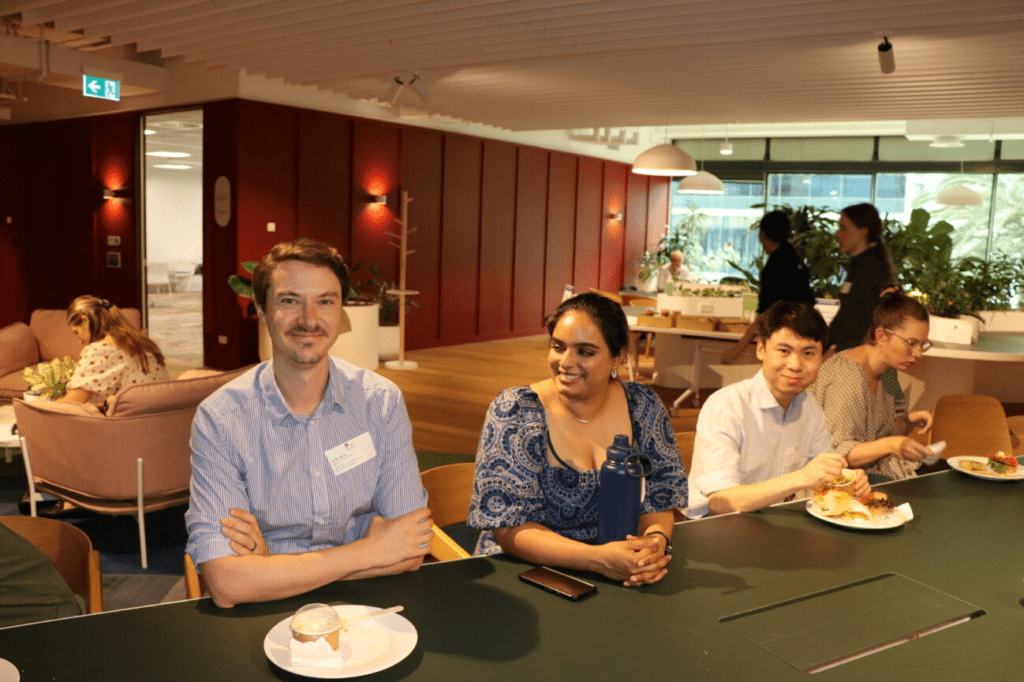
Jordan Wiebe hails from Edmonton in Canada and is happy to be in Sydney despite (or because of?) the hot summer! Erwinpreet Kaur enjoyed an Resident Medical Officer (RMO) term in pathology at Wollongong Hospital before joining us as an AP trainee. She was inspired by the ‘Bernie factor’: Dr Bernie l’Ons, a Specialist Forensic and Anatomical Pathologist with our Forensic Medicine Wollongong service.
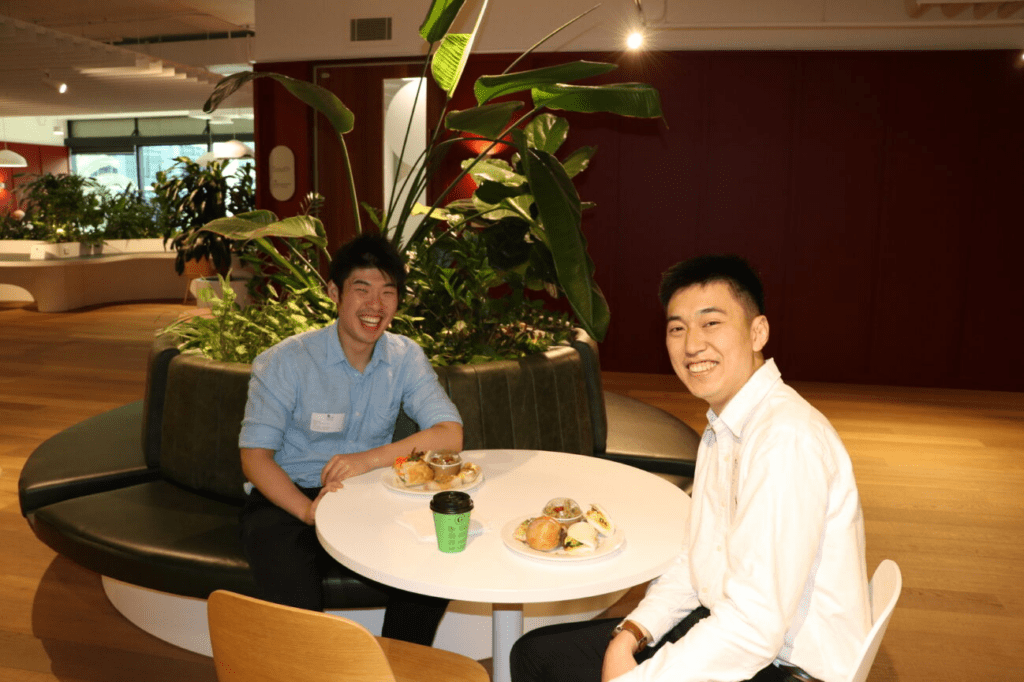
We’re so pleased to see the enthusiasm of our new trainees. Will Chang (pictured above) is the brother of Michael Chang who started with us last year as a Forensic trainee. We’d love to hear their family conversations about who has the best job!
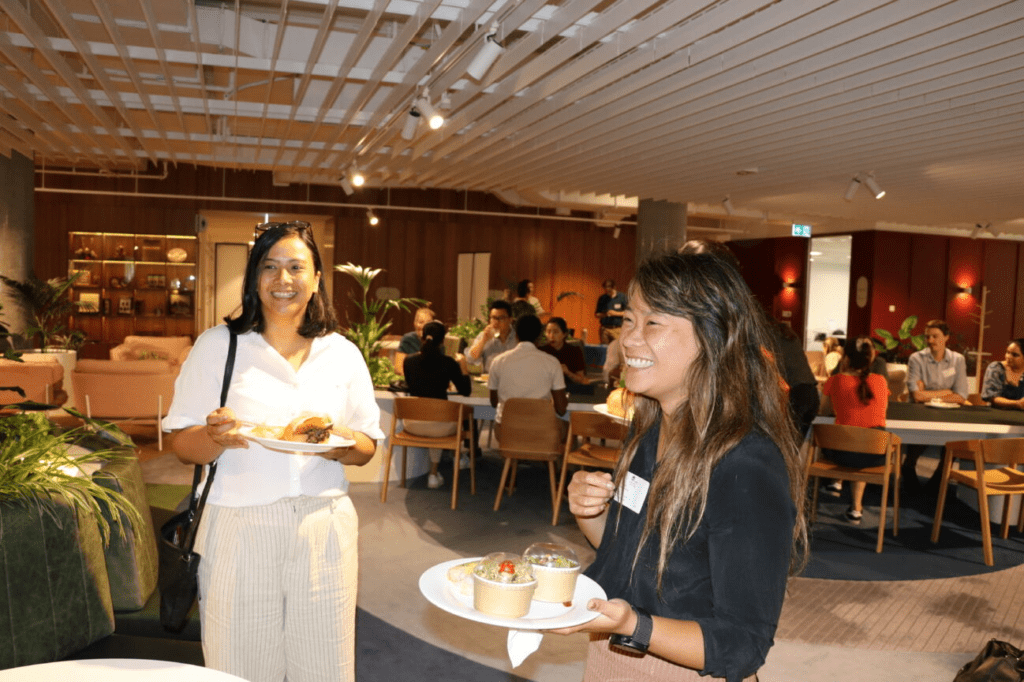
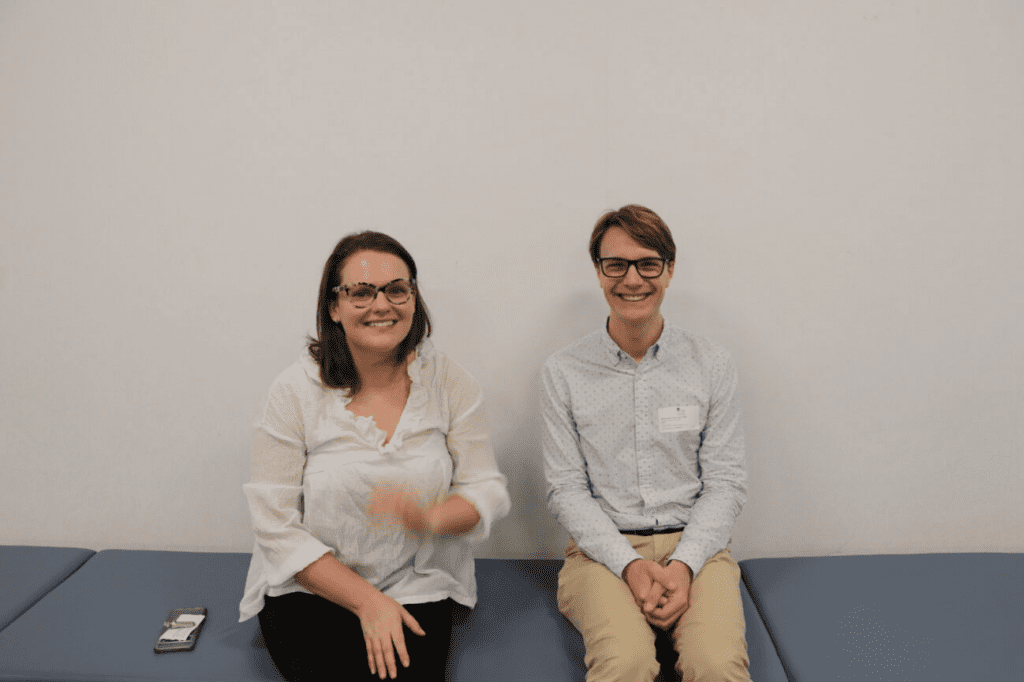
Thank you also to senior AP trainees Alice Ormandy, St George Hospital, and Alexander van laar Veth, St Vincents Hospital (pictured above) for their presentations to the new trainees.
